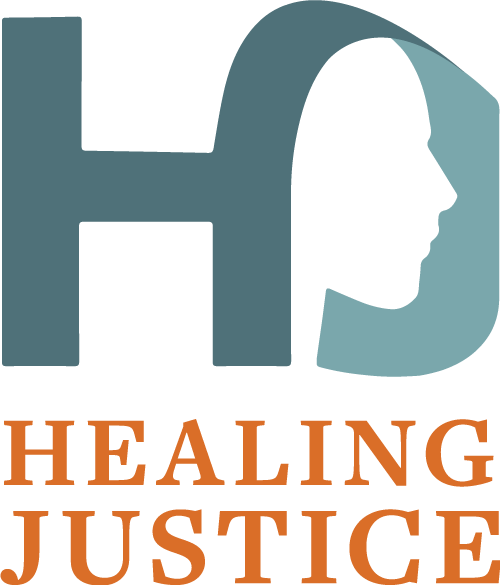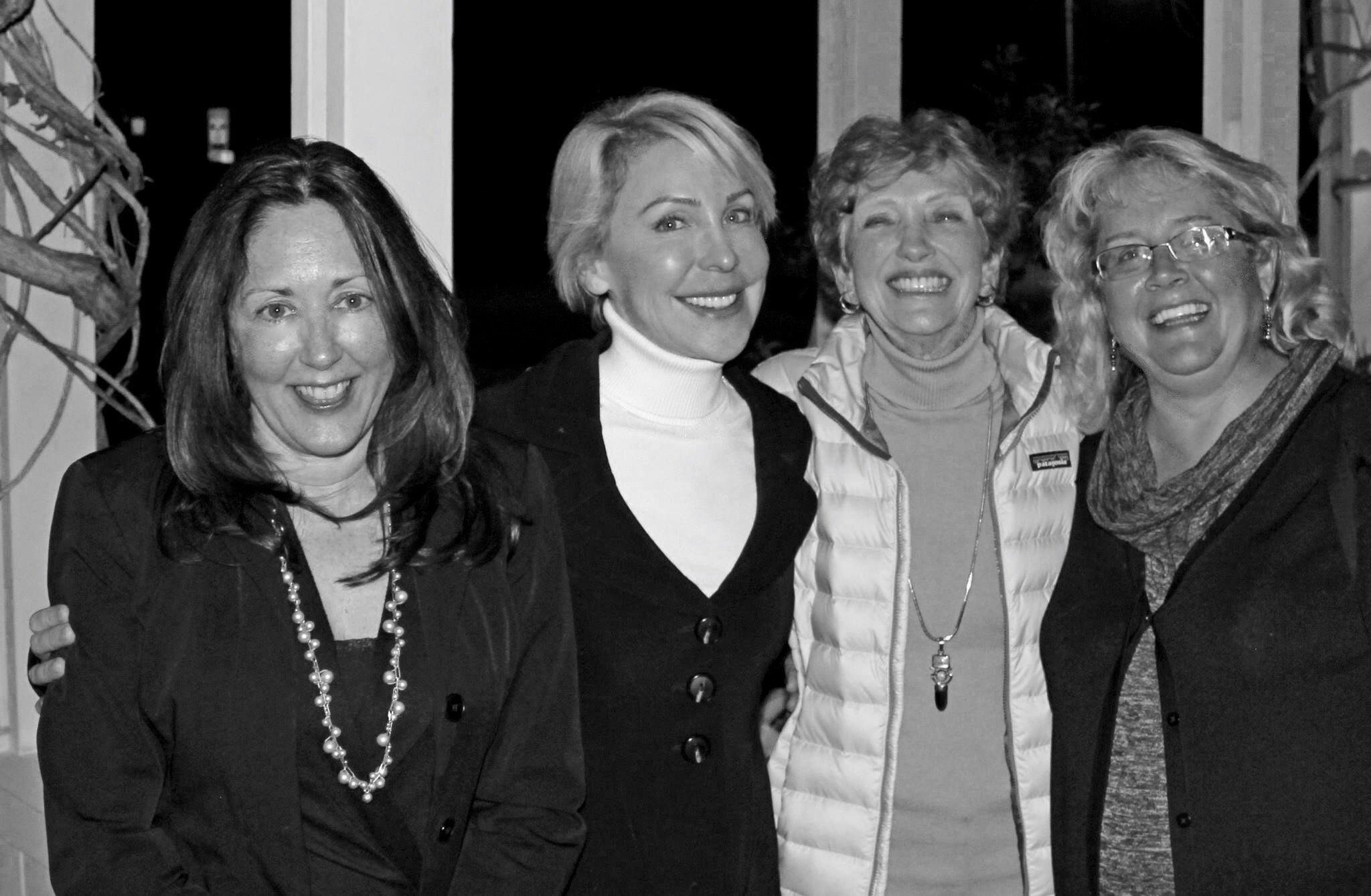Donor Spotlight: An Interview with Susan Welby
From left to right: Katie Monroe, Susan Welby, Beverly Monroe, and Jensie Anderson.
In September, Director of Strategic Partnerships, Kris Rose, spoke with Susan Welby, a long-time Healing Justice supporter from Los Angeles, CA. In this interview, Susan talks about her own experience with trauma, how she was introduced to Healing Justice, and what excites her about our work.
I understand you’re a performer. Can you tell me a little more about that?
I worked as a singer-dancer and an actress in my youth. I did my undergraduate work in acting at the University of Utah, and I got my Master’s Degree in Clinical Psychology at Antioch University in Los Angeles. I’m a work-in-progress.
What was your first introduction to Healing Justice?
I heard about Jennifer Thompson and Katie Monroe through my friend, Jensie Anderson, who was Director of the Rocky Mountain Innocence Center (RMIC) at the time. I later met Katie and her mother Beverly Monroe at the RMIC, and I was introduced to Jennifer Thompson shortly after that at an Innocence Network conference. I was deeply impressed by Jennifer and Katie’s ability to transform trauma into healing and to empower other survivors to uncover a sense of personal agency, hope, and purpose. They were creating new narratives.
You were our very first sponsor of a full retreat, which was for exonerated women. Why was this important to you?
It really resonated with me, because I have some experience with trauma and healing. My experience pales in comparison to what female survivors have experienced. I know how essential it is to find healing and fellowship in order to reclaim one’s life from trauma. I’ve learned that the survivors of violent crime and the criminal justice system are left on their own after those in the system declare the case closed. Survivors - especially female survivors - need assistance in a variety of areas in order to reclaim their lives. That assistance is crucial. When I learned about Healing Justice’s healing circles and retreats, I was all-in as a supporter.
If you could describe the work of Healing Justice in one word, what would it be?
Lifeline.
When you choose to support a specific organization, what kinds of characteristics do you look for?
I look for informed leadership, integrity, knowledge of the problems they’re attempting to solve, humility, honesty in measuring progress toward specific goals, intelligence in evaluating and approaching problems. Healing Justice embodies these qualities.
I knew that Katie and Jennifer had experienced the worst of the criminal justice system, and they were not only survivors, they became powerful advocates. They are doing this work because of their passion. What drives them is their desire to make suffering meaningful and to transcend it in fellowship with others. They do this work because they know firsthand how desperately needed it is. They made a choice to become part of the solution, as creators of positive change, as advocates, and as healers of trauma. They are survivor-champions, and they step up to share their grace and grit in an experiential format, to create exponential healing. I believe their collaboration benefits our entire society.
Is there something specific that you would like to see Healing Justice do as it expands and grows?
My hope is that Healing Justice will grow exponentially! I am excited about the variety of modalities that can be used to address complex trauma. One modality in trauma healing that interests me in particular is called Somatic Experience. Survivors of trauma learn to self-regulate beyond fight, flight, and freeze. The process reconnects us to our bodies and sense of personal agency, freeing us to choose our own safety and create clear boundaries with more ease and finesse.
From the first-ever healing retreat for exonerated women in California in March 2017.


